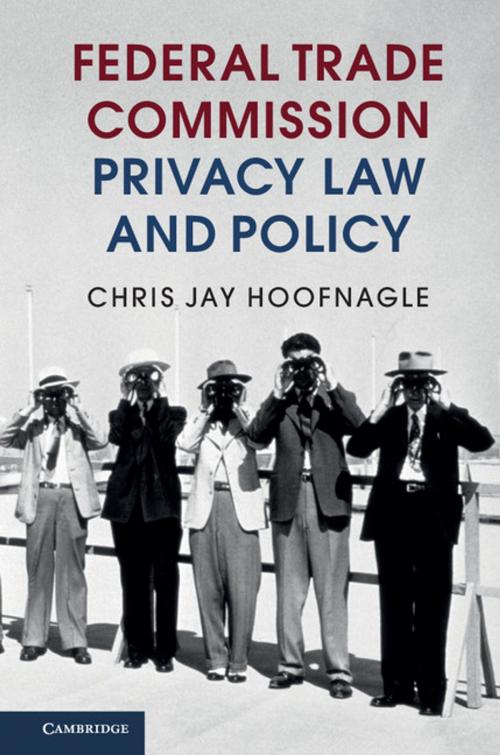| Author: | Chris Jay Hoofnagle | ISBN: | 9781316494509 |
| Publisher: | Cambridge University Press | Publication: | February 9, 2016 |
| Imprint: | Cambridge University Press | Language: | English |
| Author: | Chris Jay Hoofnagle |
| ISBN: | 9781316494509 |
| Publisher: | Cambridge University Press |
| Publication: | February 9, 2016 |
| Imprint: | Cambridge University Press |
| Language: | English |
The Federal Trade Commission, a US agency created in 1914 to police the problem of 'bigness', has evolved into the most important regulator of information privacy - and thus innovation policy - in the world. Its policies profoundly affect business practices and serve to regulate most of the consumer economy. In short, it now regulates our technological future. Despite its stature, however, the agency is often poorly understood by observers and even those who practice before it. This volume by Chris Jay Hoofnagle - an internationally recognized scholar with more than fifteen years of experience interacting with the FTC - is designed to redress this confusion by explaining how the FTC arrived at its current position of power. It will be essential reading for lawyers, legal academics, political scientists, historians and anyone else interested in understanding the FTC's privacy activities and how they fit in the context of the agency's broader consumer protection mission.
The Federal Trade Commission, a US agency created in 1914 to police the problem of 'bigness', has evolved into the most important regulator of information privacy - and thus innovation policy - in the world. Its policies profoundly affect business practices and serve to regulate most of the consumer economy. In short, it now regulates our technological future. Despite its stature, however, the agency is often poorly understood by observers and even those who practice before it. This volume by Chris Jay Hoofnagle - an internationally recognized scholar with more than fifteen years of experience interacting with the FTC - is designed to redress this confusion by explaining how the FTC arrived at its current position of power. It will be essential reading for lawyers, legal academics, political scientists, historians and anyone else interested in understanding the FTC's privacy activities and how they fit in the context of the agency's broader consumer protection mission.















